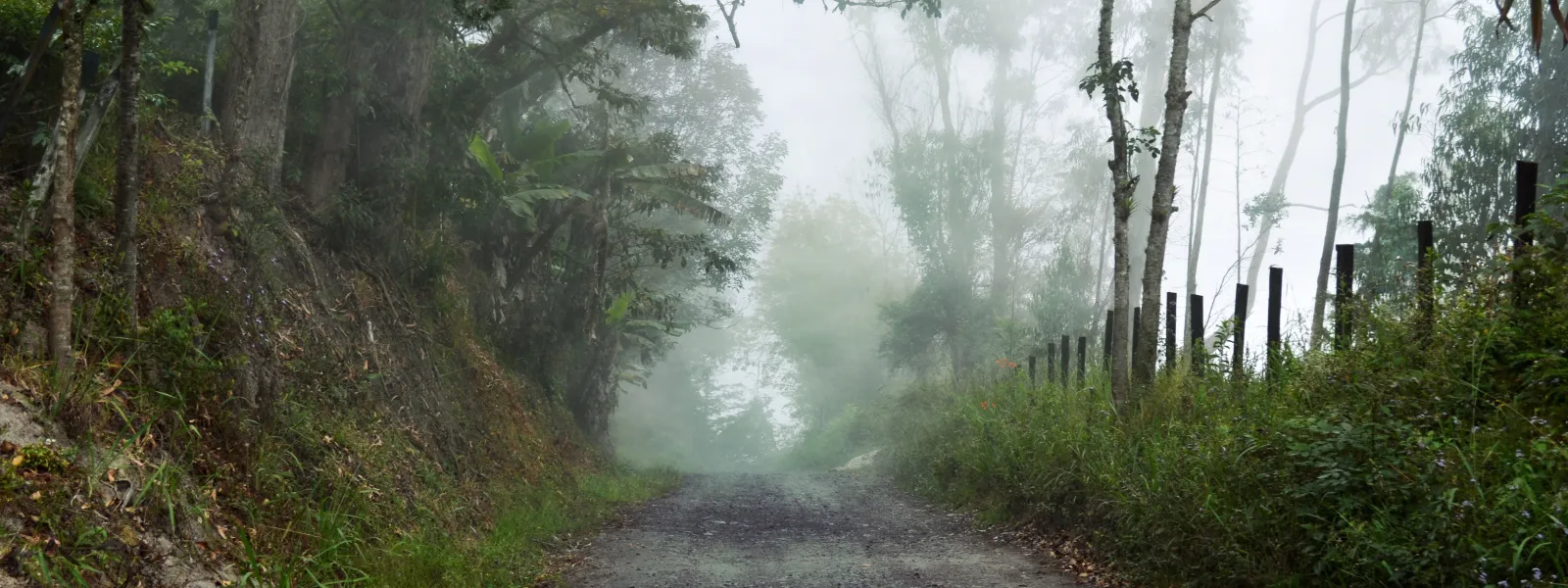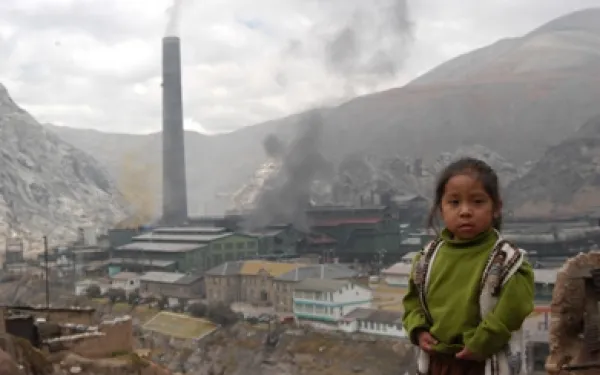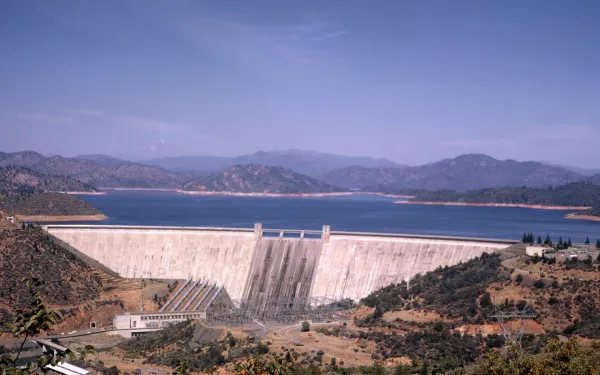
Project
Victory: Constitutional Court Defends Right to Prior Consultation
On January 23, 2008, the Colombian Constitutional Court declared the Forest Law of 2006 to be unconstitutional and therefore, invalid, because lawmakers did not consult with indigenous, afrodescendant, and tribal communities during development of the law as required.
This decision is an advance for these Colombian communities who view many economic development projects and policies as a threat to their traditional territory and cultural identity, as well as the environment. The ruling also establishes a valuable legal precedent that can be used to bolster indigenous and tribal communities’ rights in other legal cases throughout the Americas.
The Colombian government is required by law to consult with indigenous and tribal communities regarding administrative and legislative decisions that may affect them. It is obligated to do so because the Colombian Congress previously adopted into law “Convention 169,” a treaty of the International Labour Organization that protects this right and others.
In this case, the Court decided that indigenous and tribal communities should have been consulted because the Forest Law regulates forest issues in general terms, and contains provisions that “will likely affect areas generally used by the communities, which could impact their lifestyles and their close relationships with the forests.”
The court also declared that the requirement to consult with indigenous and traditional communities cannot be replaced with the general public participation process that the government carried out regarding the Forest bill. Rather, to comply with the law, the government should inform the communities about the proposed law, explain its implications and how it could affect them, and give them opportunities to effectively state their opinions regarding the bill.
As a result of this court ruling and civil society’s call to respect the right to prior and informed consultation, the Colombian government proposed a law to regulate and enforce this fundamental right. The Ministry of Agriculture also began developing a new forest law, this time using a process that complies with prior and informed consent procedures.
The lawsuit was brought by a group of students and professors from the University of Los Andes Law School in Bogota with the support of AIDA. Social organizations including the Proceso de Comunidades Negras, the National Indigenous Organization of Colombia (ONIC) and CENSAT Agua Viva also supported the group in presenting this case.
This group also filed a second lawsuit against the Forest Law alleging that the law violated Constitutional provisions protecting the environment. However, because of the January court decision, no decision will be made on this second suit.
Related projects

La Oroya triumphed in the Constitutional Court, but the ruling was not implemented
In 2006, the Peruvian Constitutional Tribunal recognized that high levels of pollution in La Oroya were causing serious health problems for the local population. The Tribunal ordered the Ministry of Health to comply with the law and take urgent action to prevent additional irreversible impacts to the environment and human health. This decision was supported by numerous scientific reports from the government, civil society organizations, and Doe Run Peru, which operates the smelter. In its decision, the Tribunal accepted all the arguments presented by the Peruvian Society for Environmental Law (SPDA), which represented La Oroya citizens in the case with AIDA’s support. The court gave the government 30 days to: Provide emergency medical attention for people contaminated with lead, giving priority to pregnant women and children; Implement an action plan to improve air quality in La Oroya; Declare States of Alert when pollution levels are excessive; Establish epidemiological and environmental monitoring programs. This ruling established a key legal precedent for three fundamental reasons. First, it recognized that extremely high pollution levels like those in La Oroya can cause serious and irreversible harm to people’s health, violating human rights. Second, it reiterated the State’s obligation to protect citizen rights, requiring specific actions to reduce health threats. Third, by ordering the State to coordinate with the polluting company, the Tribunal confirmed that corporations are responsible for conducting their businesses in ways that respect the human rights to health, to life, and to a healthy environment. In response to this ruling, the Peruvian government made some changes, but by no means complied fully with the order. Thus, in 2006, AIDA, in conjunction with Peruvian lawyers, Earthjustice, and CEDHA, brought the case to the Inter-American Commission on Human Rights. Through this case, we seek enforcement of the Peruvian court’s order and implementation of additional measures that would truly protect health in La Oroya. Follow us on Twitter: @AIDAorg "Like" our page on Facebook: https://www.facebook.com/AIDAorg
Read moreInter-American Commission on Human Rights Examines Impacts of Large Dams in Latin America
Inter-American Commission on Human Rights Examines Impacts of Large Dams in Latin America Washington, D.C. - On November 2, 2009 the Inter-American Commission on Human Rights will hold a hearing on the impacts that large dams in Latin America have on human rights and the environment. Dam-affected peoples and non-governmental organizations (NGOs) will present information showing that Latin-American governments are building dams at great social, environmental and economic costs, often disregarding national and international laws and violating human rights. “More than a million people have already been affected by large dams in Latin America, many of whom are from indigenous and small farming communities,” said Rafael González, Board Member of the Interamerican Association for Environmental Defense (AIDA). “More than 300 new dams are being planned throughout the region, which could destroy the livelihoods of hundreds of thousands of people and harm precious ecosystems.” The over 40 national and international NGOs requesting this hearing will present findings from AIDA’s forthcoming publication, Large Dams in the Americas: Is the Cure Worse than the Disease?, to the IACHR documenting the poor track record of dam construction in the hemisphere. They will also encourage the Inter-American Commission to make recommendations to member States on how to avoid major environmental damages and human rights violations. “The granting of this hearing by the IACHR is a positive demonstration of their interest in examining the link between large dams and human rights violations,” said Astrid Puentes co-Director of AIDA. “We hope that the IACHR will begin an investigation and recommend that States strictly enforce international standards and human rights law, to avoid major environmental impacts and human rights tragedies.” The human rights impacts of large dams are numerous. Affected communities and stakeholders—mostly indigenous, fishing and farming communities—rarely have the opportunity to participate in decisions on dam developments, and frequently are subjected to intimidation, harassment and even military actions when they oppose projects. Families displaced by large dams often receive inadequate or no compensation. Equally troubling are poorly developed resettlement plans that do not account for lost livelihoods or lack of access to medical attention, fishing areas and farming land, leaving families worse off as a result. Large dams have also had profound environmental impacts. Enormous reservoirs inundate biodiverse wildlife habitats and fertile farmlands. Dams and river diversions also harm fish populations, and are the main cause for the extinction or endangerment of one-third of the world’s freshwater fish species. “We are not against development.” said Father Gabriel Espinoza, spokesperson for communities affected by the El Zapotillo dam in Mexico, and who will speak before the Inter-American Commission. “We understand that a country’s needs for energy and water should be met as a fundamental right of all peoples.” “But governments cannot proceed without consulting and providing information for local communities, according to national and international law. That would violate our fundamental freedoms and disrespect our lives, history, culture and livelihoods.” “There are often better, cheaper, and less-destructive alternatives to building a large dam, whether to meet energy or water needs, or to reduce the impacts from floods,” said Monti Aguirre of International Rivers. “Small-scale, decentralized water supplies and new renewable energy sources, as well as large-scale efficiency and conservation plans are only some of the options available. Unfortunately, governments and corporations frequently ignore these choices or dismiss them out-of-hand when a large dam project is on the table.” The World Commission on Dams, in its ground-breaking report on large dams, Dams and Development, recommends using a comprehensive, participatory process to evaluate needs for water and energy and to assess the full range of available options. The hearing is open to the public and will take place on November 2, 2009, from 5:30 to 6:15 p.m., Room Rubén Darío, 8th Floor of the OAS General Secretariat Building, 1889 F Street NW, Washington, D.C. Guidelines for press coverage of public hearings at http://www.cidh.org/Prensa/guidelinespresscoverageENGL.htm. Opportunities for interviews with presenters after the hearing. For more information on large dams in the Americas: International Rivers, Redlar
Read more
Large Dams in the Americas: Is the Cure Worse than the Disease?
"Large Dams in the Americas: Is the Cure Worse than the Disease?", analyses the problems with large dams from the perspective of human rights and international environmental law. Our objective is to promote a greater understanding of the situation, demonstrate the connection between the grave environmental impacts and human rights violations potentially caused by large dams, and to encourage a more comprehensive assessment and implementation of these projects. Through the analysis of five case studies representing different regions of Latin America, including México, Central America, the Andean region, Brazil and the Southern Cone, we describe how States and other actors are continuously causing serious impacts to the environment and ignoring multiple international laws and standards when implementing large dam projects. Among the most important impacts that this report covers, are, among others: the destruction of strategic ecosystems; the forced displacement of communities, particularly disadvantages ones such as indigenous, campesino and afro-descendent communities; the loss of food sources and livelihoods; the lack of public participation and access to information; and the contribution to and impacts from climate change. Read and download the Executive summary (in English) Read the full report (in Spanish)
Read more